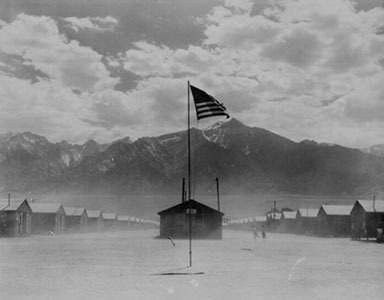 Although Law Day is not well known, every president since Eisenhower has issued a Law Day Proclamation. (You can view them all on the Library of Congress website.) Taken together, they exemplify the malleability of the discourse of rights and law. For example, Eisenhower’s 1959 Proclamation, issued amidst “massive resistance” to desegregation, departs from the previous year’s in stressing that the rule of law must be recognized as supreme (“[A] free people can assure the blessings of liberty . . . only if they recognize the necessity that the rule of law shall be supreme”). Other elements remain the same, but receive more emphasis, such as the idea that adherence to the rule of law (combined here with a “system of free enterprise”) sets the U.S. apart from the non-democratic powers “enslav[ing] . . . one-third of the world.” The next year’s Proclamation (1960) strikes a more conciliatory tone (“[T]his Nation seeks only fairness and justice in its relations with other nations”), but by the time John F. Kennedy takes office, the country once again appears embroiled in a fight for survival. Kennedy’s 1962 Proclamation portrays an embattled nation, relying on the rule of law as a “vital bulwark[]” in its “struggle” to defend its way of life.
Although Law Day is not well known, every president since Eisenhower has issued a Law Day Proclamation. (You can view them all on the Library of Congress website.) Taken together, they exemplify the malleability of the discourse of rights and law. For example, Eisenhower’s 1959 Proclamation, issued amidst “massive resistance” to desegregation, departs from the previous year’s in stressing that the rule of law must be recognized as supreme (“[A] free people can assure the blessings of liberty . . . only if they recognize the necessity that the rule of law shall be supreme”). Other elements remain the same, but receive more emphasis, such as the idea that adherence to the rule of law (combined here with a “system of free enterprise”) sets the U.S. apart from the non-democratic powers “enslav[ing] . . . one-third of the world.” The next year’s Proclamation (1960) strikes a more conciliatory tone (“[T]his Nation seeks only fairness and justice in its relations with other nations”), but by the time John F. Kennedy takes office, the country once again appears embroiled in a fight for survival. Kennedy’s 1962 Proclamation portrays an embattled nation, relying on the rule of law as a “vital bulwark[]” in its “struggle” to defend its way of life. Subsequent years would witness an escalation of the fight against communist forces in Vietnam, yet President Lyndon Johnson’s Proclamations look inward rather than outward. The lawlessness they decry is not that of America’s foreign enemies, but of its own citizens, especially youth. Johnson’s 1964 Proclamation, for example, aspires to bring “to all citizens, and particularly to young Americans” a “fuller awareness” of the importance of “[r]espect for law.” The following year’s Proclamation hits the same notes, and frowns on those who demonstrate “apathy” and obstructionism (Americans must “support[] and aid[] the agencies of law enforcement” and -- an unusually specific mandate -- “giv[e] testimony in court when called”).
This message grows increasingly urgent over the following years, as riots, assassinations, and public violence color the news – and call into question the legitimacy of the legal system. Johnson's 1968 Proclamation begs Americans to recognize that the law “is not the mere exercise of power” nor “just a device to enforce the status quo,” but a “system that permits existing rights to be protected, injustices to be remedied, and disputes to be resolved, without recourse to self-defeating violence.” The 1968 Proclamation also stands out for its suggestion – to some, its promise – that law responds to society: “Law is a process of continuous growth that allows the creation of new rights . . . through a deliberative, democratic process”; the legal system can yet become “more just, more effective, and more responsive to our people’s needs.” President Nixon’s Law Day Proclamations are what one might expect. He conveys openness to legal change, but emphasizes “orderly process.” He honors the law and the lawgivers, but “above all those citizens who keep the law,” the Silent Majority that swept him into office. Nixon’s 1974 Proclamation is particularly ironic: It notes that “the law retains its value and force because every person knows that no man or woman is above” its requirements.
Image credits: scale/flag, May Day cover









.jpg)




















